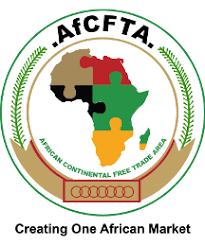BY: Rita Nedjoh | Voltaonlinegh.com |
The director of operations at the Ghana Export Promotion Authority (GEPA) Mr. Alexander Dadzawa noted that the Africa Continental Free Trade Area (AfCFTA) is a market opportunity for Ghana to help reduce the exportation of primary materials to African and non-African countries which reduces the percentage of the GDP rather than increasing it.
He explained that in 2019 Non-Traditional Export (NTE) products were exported to 155 countries including non-African countries of which US$836,511,513 of non-traditional goods were exported to ECOWAS countries representing an increase rate of 12.75% from the previous year whiles the market destination takes 28.8% share of the total market.
He also added that the European Union market destination takes 38.18% of the market shares by consuming US$1.11 billion of non-traditional exports with -3.43 percent growths while other African countries absorb US$144,943 at a growth rate of 237.91% in 2019 compared to 2018.
Mr. Dadzawa also noted that, the population of the 53 African countries under AfCFTA is about 1.2 billion people and the GDP to be generated is $1.3 trillion which will boost the economy of the African countries.
He mentioned that one main strategic objective of AfCFTA will be to increase intra-African trade through better harmonization and coordination of trade within the African continent.
Adding that, being more professional and result driven oriented will increase the contribution of non-traditional exports to GDP growth with consequent significant increase per capita income to achieve the globally competitive value-added products and services as well as achieving US$25.3 billion by the 10th year of the NEDS in 2029 and ensuring substantial increase in manufactured goods and services component of Ghana NETs.
Mr. Dadzawa explained that, Instead of the usual exportation of raw materials with a low GDP, Ghanaian investors must begin to add value to their produce and not less than 2.5 million products are expected to be exported.
He further explained that the national export strategy was developed in response to the opportunities that comes with the AfCFTA project and it is built on three (3) pillars thus expanding and diversifying the supply base value added industrial export products and services, improve the regular environment for export and to building and expand the required human capital industrial export development and marketing to solve any challenge ahead.
Mr. Dzadzawa noted that government initiatives such as the One District, One Factory 1D1F, One Region, One Park 1R1P, Strategic Industries Initiative, SME Development and Promotion of Standards are some interventions put in place to enhance the industrial productive capacity of the economy.
Present at the conference was the deputy Volta regional minister Rev. Avuletey, officials from the Ghana standards board, food and drugs authority, stanbic bank as well as personnel from the Ghana security services in the Volta region.
Source: www.voltaonlinegh.com




